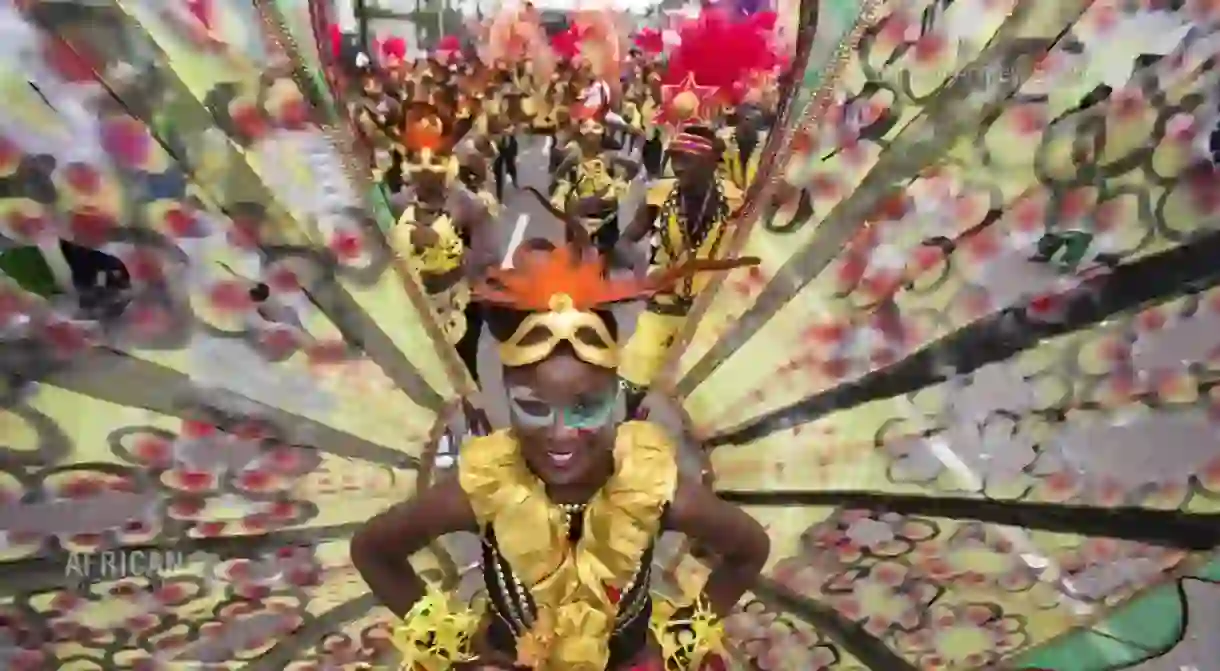A Solo Traveler’s Guide to Nigeria

The most populous black country in the world, Nigeria is at once both fascinating and exasperating, but this further lends to the adventures that can be had by the solo traveler visiting the country. As diverse in landscape as her peoples, cuisine, culture (celebrated year round) and languages, Nigeria is a haven for the person looking for an experience of the unusual.
What to Do and See
Documenting Nigeria is a huge task because it is an explorer’s heaven, particularly for the ones interested in having a good time while soaking up its beauty and culture. However, there are a few important places that can give the adventurous a taste of what Nigeria is really like.

Lagos
Known as the commercial hub of Nigeria, a visit to the beaches of Lagos is a must, as they are beautiful and there are some great surfing spots around the city. Badagry is an idyllic spot for the person looking for quiet beaches and history. The Adamu Orisa play, popularly known as Eyo Masquerade, is celebrated annually and is the forerunner of the Brazil Carnival. The Muson Centre (Musical Society of Nigeria) hosts musical festivals, operas, and plays. In the heart of Lagos Island is Freedom Park, a former colonial prison turned leisure park, which regularly holds open air concerts by both contemporary and old school musicians from around the world, art exhibitions, dances, and plays. The National Museum holds fantastic collections of archaeology, ethnography, and arts. The New Afrika Shrine is a must for the music lover, who wants to explore Afrobeat, a genre created by Fela Anikulapo-Kuti. The LeThere’s also a host of art galleries, both on the Island and Mainland of Lagos that should be visited.
Cross Rivers
With one of the most beautiful landscapes in Nigeria, and a rich history of travel and trade, Cross River is another state a lone traveler would enjoy exploring. Duke Town Church is one of the oldest, while the Calabar Museum houses one of the largest collections of original documents relating to the slave trade and palm oil production in Nigeria. The Cross River National Park spans a total land area of 720 square kilometers, with mountain sceneries that make for fantastic photo ops. There are also the Kwa Falls, Ikom Monoliths, the I Obong Palace, and so many other sights.
The Calabar Carnival is a month long rave that attracts hundreds of people from within Nigeria and internationally, in the past 14 years of its existence it has established itself as “Africa’s biggest street party.”

Kaduna
Kaduna is one of the most beautiful and ecologically diverse states in Nigeria. Located in the Northern part of the country, its rich history portrays the cosmopolitanism of the Hausa and Fulani tribes that make up the larger parts of its peoples. The Kamuku National Park is one of the best nature reserves in the northern part of the country and has over 177 species of birds; there are also herds of roans, elephants, warthogs, and baboons. The Palace of the Emir of Zazzau is a feast for the eyes and senses, and is located within the ancient city of Zaria. For the anthropologically inclined a visit to the Nok Village is a must; this ancient civilization appeared around 1000 B.C.E. and vanished in 500 C.E. under mysterious circumstances. The Matsirgra Waterfalls, part of the Kagoro Hills, is also one of the destinations that should not be missed out. Other sights include the Kaduna River, the Kaduna Museum, and Kajuru Castle.

Where to Eat
Nigeria has a wide and diverse cuisine from the different ethnic groups within its borders. Luckily for the lone traveler, there are a lot of restaurants that cater to international palates, some more expensive than others, although as with most restaurants worldwide, expensive doesn’t equate taste.
Lagos is also a great place to enjoy both local and international cuisines. There are several KFC outlets and other fast food joints that are moderately priced and the food is quite good. But if interested in fine dining and an artsy experience, there’s the Hard Rock Café, Bogobiri House (which also doubles as a boutique hotel), the Talindo Steak House Restaurant, and many more. Within Freedom Park are restaurants specializing in vegetarian cuisine, Chinese food, and Nigerian fares that can be eaten in the quadrangle.
The cuisine in Cross Rivers is one of the best in the country. Since it is located near the sea there’s a wealth of seafood to be had. Tinapa Lakeside Hotel and Obudu Resort offers vegetarian fare, while Happy Food is a Chinese restaurant, and Chillis Café offers continental food at moderate prizes.
Northern Nigeria is home to the savory and sweet, but they also specialize in diary products and barbecued street food, called suya. But for filling meals and fine dining at reasonable prices, you should try Byblos restaurant—they also do vegetarian food. For Chinese meals, try the Hotel Seventeen Restaurant. The Kaduna Rugby club specializes in English meals. For fast food, try the Mr. Biggs and Chicken Republic outlets scattered around the city.
Tips: All these cities are quite cosmopolitan. Nigerians are warmhearted and welcoming, but ensure you don’t go out carrying too much cash. Use Uber, Taxify, and other apps, as you’ll feel safer and get around faster.
Street food is common, cheap, and safe. If you’re in Lagos, do try the Chicken and Chips on Ojuelegba, it’s really delicious. Don’t turn down Jollof Rice. The food in the southwest of Nigeria, populated by the Yoruba, is very spicy and not for the faint hearted.













